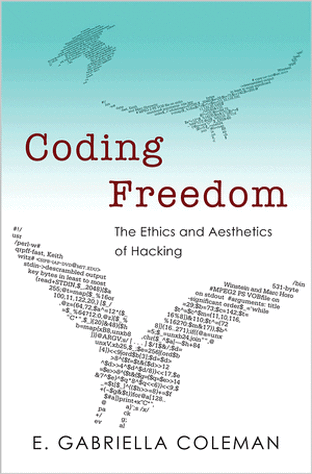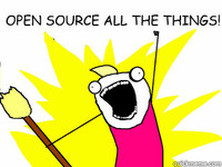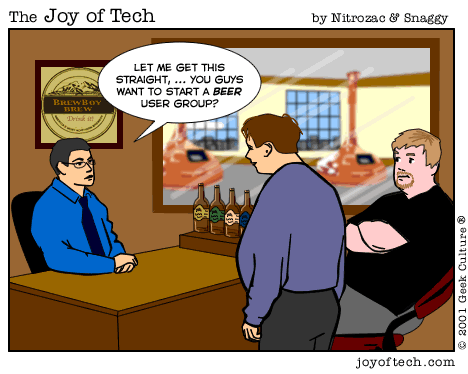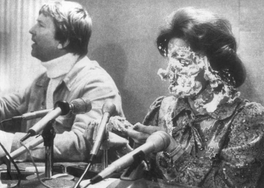…F/OSS represents a liberal critique from within liberalism. Hackers sit simultaneously at the center and margins of the liberal tradition. The expansion of intellectual property law, as noted by some authors is part and parcel of a broader neoliberal trend to privatize what was once public or under the state’s aegis, such as health provisions, water delivery, and military services…As such, free software hackers not only reveal a long-standing tension within liberal legal rights but also offer a targeted critique of the neoliberal drive to make property out of almost anything, including software. (pgs. 3-4)

Which brings me back to my earlier point, hackers are able to critique and often re-code neoliberal discourses of intellectual property law through counter-hegemonic resistance, but in doing so they practice their own liberalism and meritocracy. We see that with the exclusivity of the hacker subculture (you must prove yourself type of thing) and their politics of humor, which is also coded.
Questions:
1. Copyleft was strategically using language to subvert the privatization of intellectual property. However, can copyleft become vulnerable to monopolization by corporations who wish to commodify it? If so, is counter-hegemonic resistance not only challenging hegemony, but also fighting to not become hegemonic?
2. Why do hackers hold on to meritocracy even if they are suspicious of it? Is it only a result of culture? Or is there something else influencing that relationship?







 RSS Feed
RSS Feed
